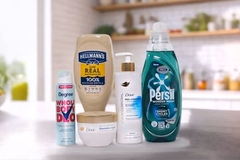“Purposefully mislabeled”: Skin-lightening creams in Bangladesh found laced with harmful mercury

A study has revealed that 22 out of 26 popular skin-lightening creams sold in Bangladesh contain mercury levels up to 24,800 times the legal limit, violating international treaty commitments and national bans. None of the products list mercury as an ingredient and are instead “purposefully mislabeled” with “natural,” “herbal,” or “safe for use” claims.
According to the researchers, the findings expose systemic failures in regulation, customs enforcement, and online governance, enabling a global illegal trade that jeopardizes public health.
Personal Care Insights speaks with the Environment and Social Development Organization (ESDO), which conducted the study alongside the European Environmental Bureau (EEB) and Thony Dizon, on behalf of toxic watchdog group BAN Toxics.

Among the most alarming results were that Due Beauty Cream and Golden Pearl Beauty Cream contain mercury levels of 24,800 parts per million (ppm) and 20,700 ppm, respectively. The international safety limit is one ppm.
Despite being banned by the Bangladesh Standards and Testing Institution (BSTI), the products remain widely available.
“In some cases, manufacturers are identifiable, especially for brands with repeated violations,” says Dr. Foijun Nahar, Research and Policy associate at ESDO. “However, many mercury-positive products are manufactured in other countries, making enforcement difficult due to cross-border legal complexities and limited collaboration.”
Only sophisticated laboratory testing, such as X-ray Fluorescence analysis used in the study, can detect the actual contents. Without such analysis, the presence of mercury remains entirely hidden from consumers.
.jpg) Despite official bans, mercury-laced creams remain widely available in Bangladeshi markets.Mercury is a potent neurotoxin: the WHO warns it can irreparably damage the nervous system, and prolonged cosmetic use is linked to kidney failure, skin rashes and immune dysfunction.
Despite official bans, mercury-laced creams remain widely available in Bangladeshi markets.Mercury is a potent neurotoxin: the WHO warns it can irreparably damage the nervous system, and prolonged cosmetic use is linked to kidney failure, skin rashes and immune dysfunction.
The toxin also threatens fetal development and passes into breast milk. “Mercury in creams is a silent killer that will slowly harm individuals over time, often without immediate symptoms,” warns Dr. Shahriar Hossain, Senior Technical Adviser at ESDO.
Limited workforce and the blind-eye
Despite explicit bans on mercury-laced products, illegal trade routes remain robust and challenging to monitor.
According to Nahar, false declarations and shipping in small quantities are a common tactic, with products often labeled as “cosmetic samples,” “personal use,” or “herbal cream” to avoid detection — “because customs frequently concentrate on large commercial shipments.”
“These personal-use quantities rarely attract scrutiny unless there are specific intelligence or routine checks,” says Hossain. He adds that customs and port authorities are “under-resourced and have limited manpower.”
There is a shortage of the necessary technical equipment needed for proper scans. Customs officers also frequently lack the training to identify non-compliant cosmetics or fully understand mercury’s health and environmental risks.
With thousands of shipments arriving daily, authorities often prioritize high-risk items like drugs or firearms over cosmetics. In some regions, the issue is compounded by “weak governance and corruption,” which can “lead to the deliberate overlooking of illegal shipments or falsified documentation,” adds Hossain.
Removing the middle-man
According to ESDO, the products identified in the study originate from Pakistan, China, Korea, Thailand, Bangladesh, Taiwan, and Vietnam. These countries are strong drivers of the global trade network, in part due to deeply rooted colorism and beauty standards repeated ad nauseum through media and advertising, says Hossain.
“Online platforms have become a key channel for the sale of banned products,” often outmaneuvering national regulatory oversight entirely, Nahar explains. “Sellers bypass traditional retail laws by using social media and e-commerce platforms to communicate directly with customers. These channels are more difficult to control.”.jpg) Colorism continues to fuel demand for dangerous skin-lightening products.
Colorism continues to fuel demand for dangerous skin-lightening products.
ESDO confirms that most e-commerce platforms, alongside social media sites such as Facebook, X (formerly Twitter), and TikTok, are not held accountable for selling formally prohibited toxic products in Bangladesh.
“We strongly believe these platforms should be held accountable and legally obligated to implement stricter controls.”
The enforcement black hole
Officials acknowledge that enforcement alone cannot resolve the issue.
Abu Sayed, Deputy Director at the BSTI, says: “We are running mobile courts, monitoring markets and online platforms, and even going undercover to detect banned skin-lightening creams. But BSTI alone cannot tackle this issue. Public awareness and joint efforts from citizens, organizations, media, and all sectors are essential.”
When asked what effective enforcement should look like, Hossain calls for pre-market testing, stricter manufacturing rules, and stronger port inspections. He also urges nationwide recalls, tougher penalties, and tighter oversight of both physical and digital marketplaces.
ESDO further advocates for public awareness campaigns and incentives like tax breaks and fast-track certification to encourage mercury-free alternatives.
Policy meets poverty
While Bangladesh has signed the Minamata Convention on Mercury and taken steps to implement its provisions — including import, export, and manufacturing bans, and public awareness campaigns — gaps remain.
Hossain says limited financial and technological resources have hampered enforcement.
.jpg) Toxic mercury affects both pregnancy and breastfeeding.The persistence of the problem is not unique to Bangladesh. Hossain explains that international cooperation is undermined by inconsistent safety standards, delays in implementing global agreements, and a general lack of political will in some countries.
Toxic mercury affects both pregnancy and breastfeeding.The persistence of the problem is not unique to Bangladesh. Hossain explains that international cooperation is undermined by inconsistent safety standards, delays in implementing global agreements, and a general lack of political will in some countries.
“Hazardous cosmetics are low on the political agenda, especially in regions where economic interests, such as trade and informal markets, are prioritized over public health,” he says.
“Without robust systems to share data on product testing, seizures, or violations, it becomes difficult to track the movement of illegal goods and identify hotspots for intervention.”
Moreover, the high demand for skin-lightening products creates strong financial incentives for illicit trade, making enforcement more difficult.
The Minamata Convention emphasizes transparency and cooperation rather than strict penalties. Countries are expected to submit national progress reports for review by the Conference of the Parties (COP).
“While capacity-building and technical support are provided, the effectiveness of implementation depends on each country’s will and resources,” Hossain says.
Yet, as Personal Care Insights previously reported, mercury-tainted products are often most in demand in lower-income regions — the same places where limited government resources make enforcement weak and political will is stretched thin.













